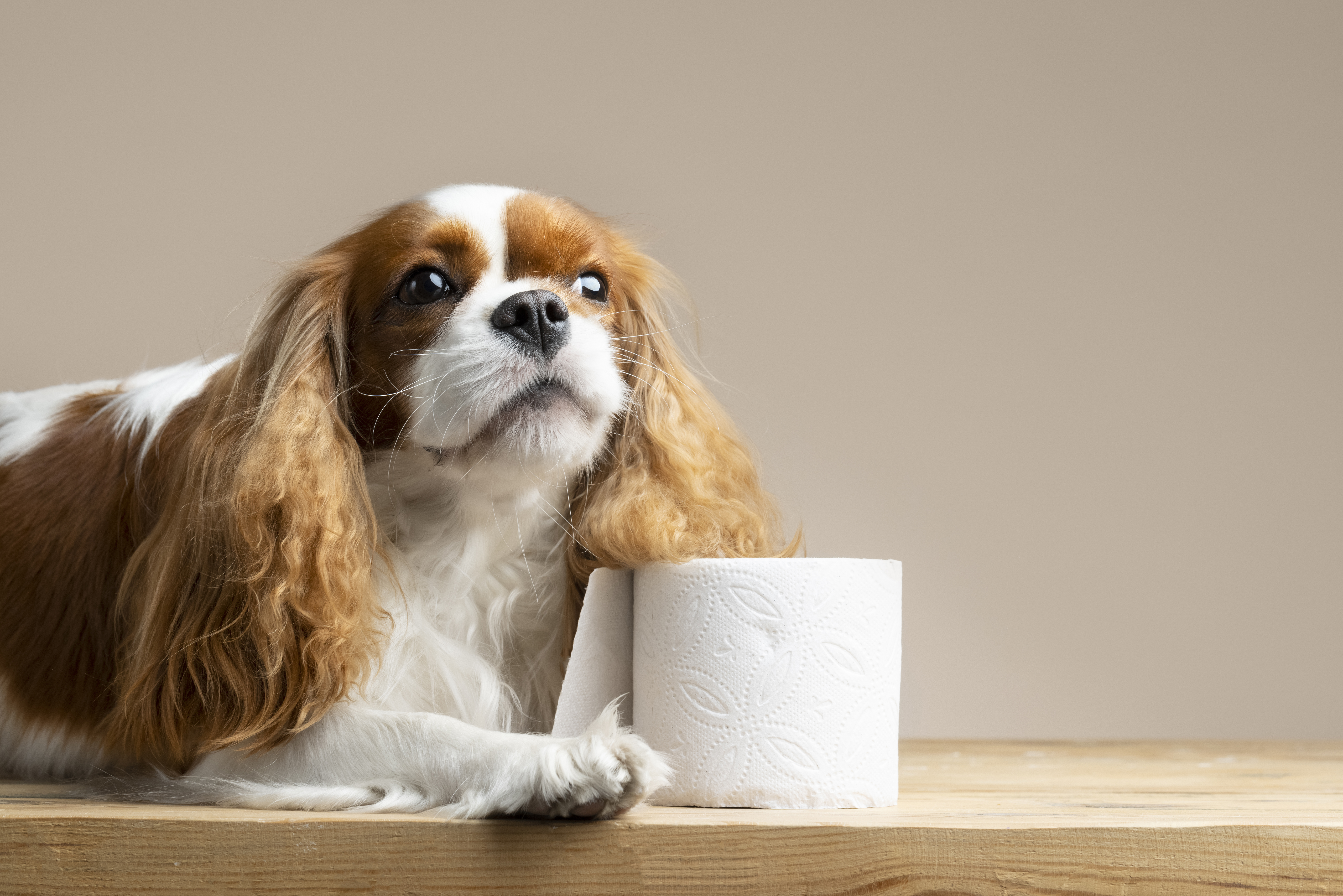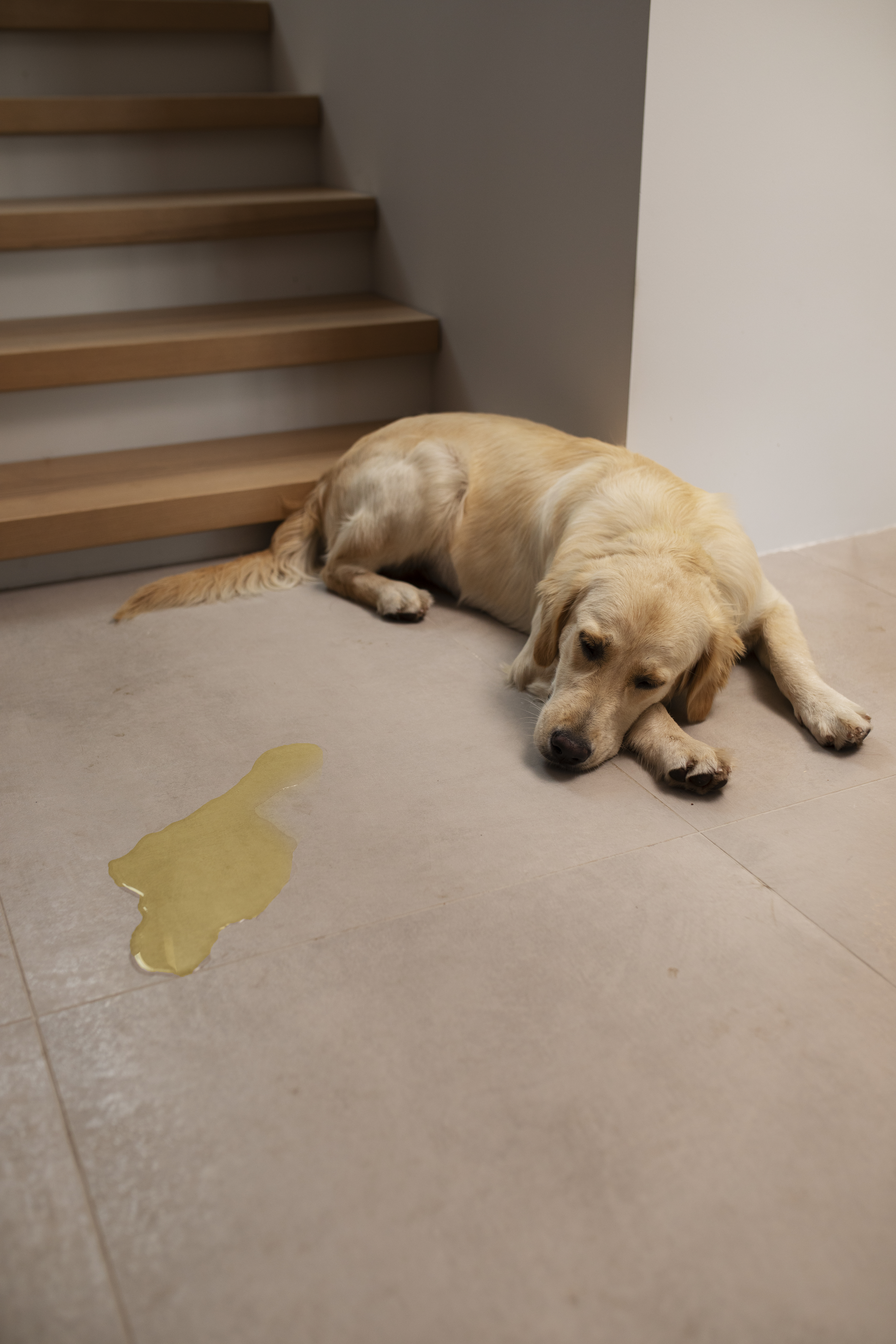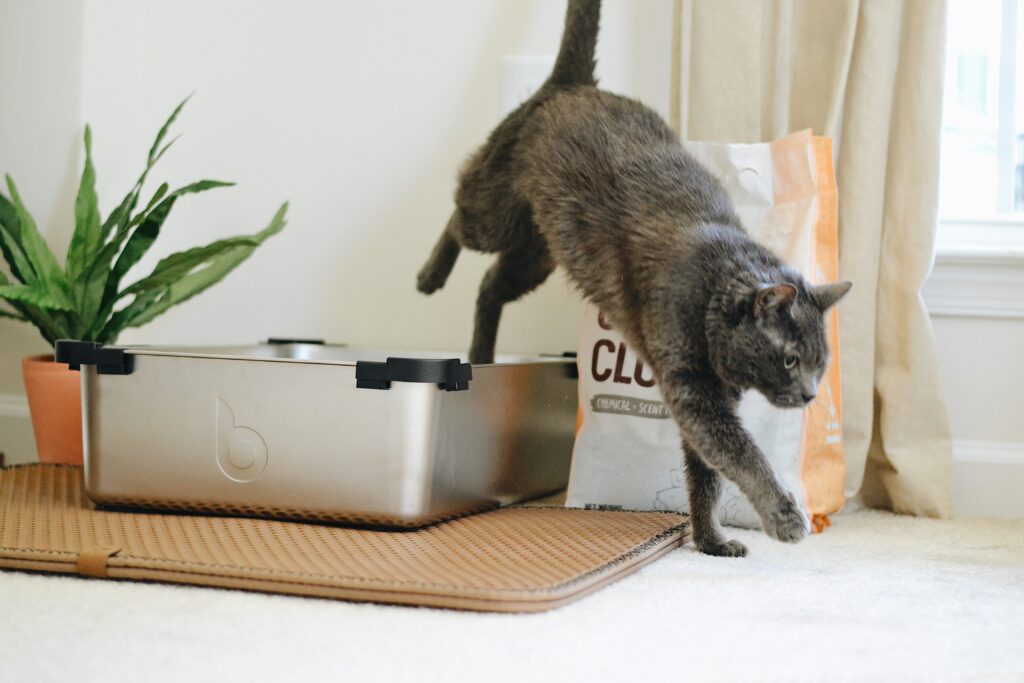
Pets Urinating In the Home Causes and Treatment
It is very upsetting to get home and find that your pet has urinated on your carpet. It is frustrating. First of all, you have to clean up the mess, and then you have to think about how to prevent this from happening again. Pets require regular training, but sometimes the urinating in the home is the result of medical and behavioral problems. This blog will give you an overview of the causes and the treatment of your pets urinating in the home.

Medical Problems in Pets
No matter how hard we try, our pets will eventually get sick and so will we. Here are a few health-related issues that can cause a perfectly trained dog or cat to urinate inappropriately:
Bladder Stones
Although it is more common to find urinary issues in both cats and dogs this problem is more common in male cats and some dog breeds like English Bulldogs and Dalmatians. This problem is very painful and should be addressed immediately.
Bladder Infection
When your pet has a bladder infection, their bladder and urethra may become swollen and sensitive causing the need to urinate again and again.
Kidney Problems
Kidney stones or kidney problems can be the cause of infrequent urination. Often we see an increase in urination because the kidneys are having trouble flushing toxins from the body.
Urinary Tract Infection
Urinary tract infections (UTIs) are just as severe and dangerous for our pets as they are for humans. Severe pains in the bladder and difficulty urinating alongside excessive licking at the lower region of your pet’s body area are unmistakable indications that your dog or cat is sick with a UTI.
Diabetes
Diabetes is one of the major cause’s increases thirst and excessive urination in pets.
Urinary Incontinence
When our pets get old they are unable to hold their urine for too long. They don’t have control over the urinary sphincter and result in involuntary leakage.
Behavioral Problems in Pets
Some behavioral aspects can cause inappropriate urination in cats and dogs.
Behavioral Issues in Dogs
Behavioral problems are more common in dogs that are not neutered. Some common problems are
- Territory Marking
This problem is more common in intact males and they tend to urinate everywhere to mark their territory.
- Anxiety
Dogs that are anxious or currently not feeling confident in their surroundings tend to pee when they don’t know where else to turn.
- Excitement
Excitement can cause dogs to become overexcited. Dogs will often urinate and defecate when they get too excited, so try to make exciting things less exciting for them for example instances when friends or new guests come over.
- Housetraining
Some dog breeds are very difficult to house train and sometimes owners don’t have enough time to house train their pets.

Behavioral Issues in Cats

Litter Box
Cats can get a little picky about their things. Some cats develop aversions to certain litter types, litter box locations, or preferences in general when it comes to the shape of the litter box itself. So they start urinating outside the box.
Territory
Some of your little feline buddies probably won’t feel comfortable if you don’t have a litter box for each one of them in the house, so make sure there are shelves for more litter boxes than the number of cats you have. This is because each box is a cat territory.
Untidy Box
Some cats are very clean and they will not urinate in a messy place, instead, the cat will start urinating outside the box.
Treatment
- If your dog has urinary tract infections, he may need antibiotics and lots of rest – not just for that particular ailment but also in order to help prevent future difficulties which may crop up from time to time. Just like humans, dogs and cats can develop medical conditions as they get older–and sometimes a pet parent doesn’t even know why this is happening. The sooner you address the medical issues, the better it will be for their overall health.
- If your pet is not trained concerning house soiling, the issue may stem from a lack of training. Some medical issues can also lead to this behavior and therefore must be considered if the trainer has ruled out those factors such as old age or illnesses. Training should start early on in a pet’s life to ensure success and help ensure that they understand which areas of your home are suitable for elimination.
- As a dog owner, you need to monitor your dog’s routine. Most dogs will eliminate within a somewhat predictable time after they’ve had their meal. Young puppies tend to eliminate within the first hour after eating, but this interval tends to be longer for adults and can vary from day today. So feeding at a proper time can make things easy for you.
- If your pup is urinating around the house, you might want to consult with a vet about neutering your dog. Neutered dogs are less likely to develop certain kinds of cancers; when you get your dog neutered, you should ask the vet about the best age for this procedure as well.
- It is very important to have a single litter box for each cat in the household along with one additional box. The box should be cleaned at least once a day and the litter cleanser should be changed daily. It’s also critical to scoop out waste areas where the cats may have urinated or defecated inappropriately. Always place the litter box in a quiet area of your house.
- It is often seen that if a cat or dog urinates outside of their specific place, the animal will often go to the same spot due to the smell of urine. You can prevent this from happening once and for all by cleaning the area as soon as possible using a diluted solution of vinegar and water. Let the solution stay at the stain for around 5–10 minutes and then rub with a clean sponge.

Conclusion
The problem of pets urinating in the home is a common one. Many pet owners find themselves struggling with a pet that urinates on the floor, bed, or couch. It’s important to remember that this can be a behavioral problem or a medical one. There is a good chance that your pet is suffering from a medical condition that is causing him pain and making it hard to control his bladder. If you have a pet that is struggling with this, it’s important to immediately schedule an appointment with your vet.
About the Author:
Savanna Westwood
Savanna Westwood is the Owner and Founder of The Savvy Sitter, Pet Sitting and Dog Walking, LLC. She has grown up with animals all her life and enjoys spending time with them. Savanna has lived in the Winter Garden and Windermere Area for over 30 years. When she is not taking care of Fur Friends, one can find her reading, practicing archery, riding, and devising ways to provide additional and excellent services to clients. Savanna is a Certified Professional Pet Sitter with Pet Sitter International's CPPS certification and also holds certification in Pet First Aid and CPCR for Pet-Care Professionals.

